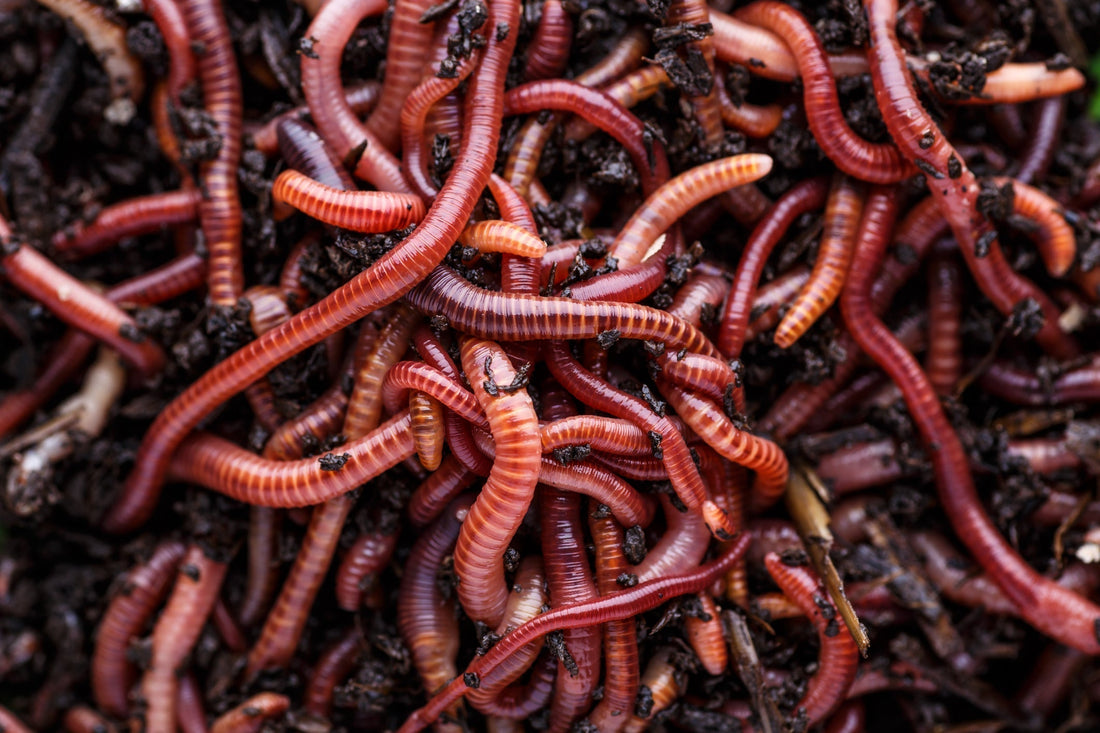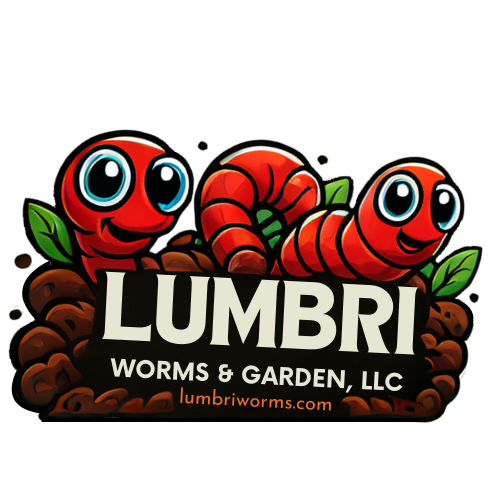
The Ultimate Guide to Compost Worms for Sale and Their Role in Sustainable Living - Lumbri Worms & Garden, LLC
Share
The Ultimate Guide to Compost Worms for Sale and Their Role in Sustainable Living
In today’s world, sustainable living has become more than a buzzword; it’s a necessity. One of the simplest yet most impactful steps you can take towards sustainability is embracing composting with worms. Compost worms, also known as red wigglers (Eisenia fetida) or European nightcrawlers (Eisenia hortensis), are nature’s little recyclers. They transform organic waste into nutrient-rich castings, reducing landfill contributions and enriching the soil. If you’re considering purchasing compost worms, this guide will help you understand their benefits, where to find them, and how they can support a greener lifestyle.
Why Compost Worms?
Compost worms are champions of waste management and soil health. Here’s why they’re worth your attention:
Efficient Decomposers: Compost worms can consume their body weight in organic matter daily, turning kitchen scraps, coffee grounds, and cardboard into high-quality fertilizer.
Eco-Friendly Solution: By composting food waste, you reduce methane emissions from landfills, a significant contributor to climate change.
Soil Enrichment: Worm castings, the byproduct of their digestion, are a powerhouse of nutrients and beneficial microbes that improve plant growth and soil structure.
Cost Savings: Using worm castings reduces the need for chemical fertilizers, saving money and supporting natural ecosystems.
Types of Compost Worms for Sale
When looking for compost worms, you’ll encounter two popular species:
Red Wigglers (Eisenia fetida):
Ideal for small-scale composting in worm bins.
Thrive in shallow, moist environments.
Highly active and prolific breeders.
European Nightcrawlers (Eisenia hortensis):
Larger and capable of processing more organic material.
Suitable for both composting and aerating garden soil.
Adaptable to varying conditions, making them versatile.
Both species are readily available online or at local worm farms.
How to Care for Compost Worms
To keep your worms healthy and productive, follow these essential care tips:
Set Up Their Home: Use a worm bin with proper ventilation and drainage. Add moist bedding like shredded newspaper, coconut coir, or leaves.
Feed Them Right: Provide small amounts of fruit and vegetable scraps, coffee grounds, and pulverized eggshells. Avoid feeding meat, dairy, or oily foods. Consider adding some worm chow too.
Maintain Moisture: Worms thrive in a moist environment. The bedding should feel like a wrung-out sponge.
Monitor Temperature: Keep the bin between 55-77°F to prevent stress or death.
Harvest Castings: Every few months, collect the rich worm castings and use them in your garden or as a top-dressing for indoor plants.
Compost Worms and Sustainable Living
By integrating compost worms into your life, you’re participating in a cycle of regeneration. Here’s how:
Reducing Waste: Diverting organic waste from landfills decreases your household’s environmental impact.
Promoting Local Food Production: Nutrient-rich worm castings boost crop yields, supporting urban and community gardening efforts.
Teaching Future Generations: Sharing the benefits of worm farming with children and peers fosters awareness and action towards sustainability.
Final Thoughts
Investing in compost worms is an accessible and impactful way to embrace sustainable living. Whether you’re a seasoned gardener or a curious beginner, these hardworking creatures can transform your waste into a valuable resource. As you embark on this journey, remember that every small step counts toward a healthier planet.
Ready to start. Give us a CALL or TEXT 951.833.4829. Ask for Aya.
Together, we can create a greener future—one worm bin at a time.
Do you have questions or success stories about worm composting? Share them in the comments below—we’d love to hear from you!
